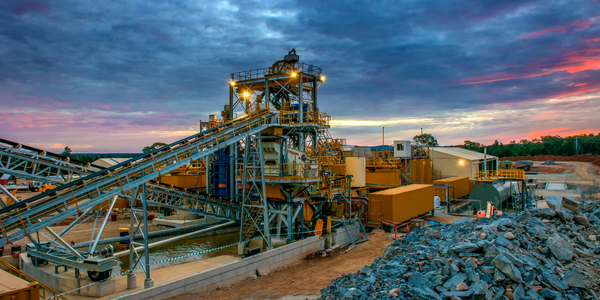Download PDF
Leading Hosting Provider Required Innovative Advanced Server Load Balancing Solution
Technology Category
- Functional Applications - Remote Monitoring & Control Systems
- Analytics & Modeling - Real Time Analytics
- Cybersecurity & Privacy - Network Security
Applicable Functions
- Business Operation
- Facility Management
Use Cases
- Remote Control
- Cybersecurity
- Energy Management System
- Predictive Maintenance
Services
- System Integration
- Software Design & Engineering Services
- Training
The Challenge
To meet their customers’ needs, LeaseWeb demanded a stable and high performance advanced Server Load Balancing (SLB) solution that included a comprehensive range of innovative features, with no licensing fees. LeaseWeb’s supplier, Datapulse, was extremely satisfied with A10 and highly recommended A10’s SLB solutions. After considering a few industry competitors, LeaseWeb conducted internal test procedures with A10 Networks’ Application Delivery Controllers (ADCs), which proved themselves by performing above LeaseWeb’s requirements. “Our internal test procedures proved A10 products performed up to and above our requirements,” said Bastiaan Spandaw, Lead Architect. In addition, LeaseWeb was very pleased with the support and customer focus they received from A10’s dedicated team.
About The Customer
LeaseWeb is a growing provider of hosted infrastructure solutions, which include a portfolio that spans from traditional dedicated server hosting to cloud and colocation solutions, or hybrid solutions. As a prominent subsidiary of Ocom Group, LeaseWeb has been offering world class hosting solutions that support mission critical websites, Internet applications, email servers, security and storage services since 1997. In addition to a network uptime of 99.999%, LeaseWeb currently offers its customers an available bandwidth of more than 2.3 Tbps. LeaseWeb currently hosts some of the largest and most respected enterprises in Europe and in North America, spanning six data centers across the Netherlands, Germany and the United States. Similar to A10 Networks® “Customer Driven Innovation”, LeaseWeb has a customer focused philosophy, which centers on commitment to customers of all sizes, from the very smallest user to the largest global customer, with industry surpassing customer service.
The Solution
LeaseWeb selected A10 ADCs for their own network use as well as for customer network needs. In addition to performance test results that exceeded expectations, and the dedicated support from the A10 team, A10 ADCs’ all-inclusive innovative features, with no additional licensing fees, sealed the deal for LeaseWeb. A10 ADCs presented LeaseWeb the following significant differentiators: Unrivaled Performance: The A10 ADCs’ scalable symmetrical multi-processing (SSMP) architecture allows traffic to utilize multiple CPUs, without latency or blocking; applications run exponentially faster, especially during peak usage times. A10 Networks Advanced Core Operating System (ACOS®) defines a new generation of ADCs with greater performance and the greatest Performance per Watt (PPW), making A10 ADCs the most flexible, scalable and energy efficient solution. Advanced SSL Offload: Processing SSL traffic on the A10 ADC greatly increases transaction speeds, decreases server hardware requirements and provides ease of administration. A10 ADCs use dedicated SSL ASICs to relieve server hardware of the burden of managing CPU-intensive SSL traffic. This is extremely important with the industry’s rising standards for SSL encryption levels, in addition to consolidating SSL processing to a single point. Dynamic HTTP RAM Caching: A10 ADC improves the web experience of LeaseWeb’s customers’ end-users, with the advanced HTTP RAM Caching feature, which improves application response time by offloading request-fulfillment for repeatedly requested content from the servers. A10 ADC provides faster client download for HTTP/HTTPS objects and improves web server scalability. Improved DDoS Protection and Security: A10 ADC detects and stops Distributed Denial of Service (DDoS) attacks, from its position in front of the network. Purpose-built ASICs provide a series of customized options to offload attack detection, supporting a proactive security stance of attack prevention without performance compromise. In addition to DDoS mitigation, A10 ADC provides a Web Application Firewall (WAF) and Application Access Management (AAM) module for added security, at no additional cost. Easy Adoption: A10 ADCs’ intuitive web-based GUI and industry-standard CLI provide LeaseWeb IT engineers with flexible management options and easy deployment. A10 ADCs’ wide range of active monitoring capabilities enables administrators to effectively observe activities, and also provides detailed reporting. Furthermore, A10 ADC provides administrative resources that allow granular access with rolebased access control. Greener Choice: A10 ADC is the industry’s most energy efficient platform. The scalable ACOS architecture, with shared memory, provides the foundation for the industry’s most energy-efficient ADC. All A10 ADC appliances set a new green standard in compact form factors with high performance, a smaller footprint and less power consumption versus competitors. This results in the highest Performance per Watt (PPW) ratio, contributing to a superior return on investment (ROI). No Licensing Model: All A10 ADC hardware appliances deliver maximum performance and advanced software features without any additional licensing fees, ensuring no budget surprises and no need to purchase licenses during unforeseen peak loads. All innovative features are included with all A10 ADC models, with a no licensing model that is unheard of within the industry. In addition, annual support costs are significantly lower than those of industry competitors.
Operational Impact
Quantitative Benefit
Related Case Studies.

Case Study
Remote Monitoring & Predictive Maintenance App for a Solar Energy System
The maintenance & tracking of various modules was an overhead for the customer due to the huge labor costs involved. Being an advanced solar solutions provider, they wanted to ensure early detection of issues and provide the best-in-class customer experience. Hence they wanted to automate the whole process.

Case Study
Goldcorp: Internet of Things Enables the Mine of the Future
Goldcorp is committed to responsible mining practices and maintaining maximum safety for its workers. At the same time, the firm is constantly exploring ways to improve the efficiency of its operations, extend the life of its assets, and control costs. Goldcorp needed technology that can maximize production efficiency by tracking all mining operations, keep employees safe with remote operations and monitoring of hazardous work areas and control production costs through better asset and site management.

Case Study
Predictive Maintenance for Industrial Chillers
For global leaders in the industrial chiller manufacturing, reliability of the entire production process is of the utmost importance. Chillers are refrigeration systems that produce ice water to provide cooling for a process or industrial application. One of those leaders sought a way to respond to asset performance issues, even before they occur. The intelligence to guarantee maximum reliability of cooling devices is embedded (pre-alarming). A pre-alarming phase means that the cooling device still works, but symptoms may appear, telling manufacturers that a failure is likely to occur in the near future. Chillers who are not internet connected at that moment, provide little insight in this pre-alarming phase.

Case Study
Aircraft Predictive Maintenance and Workflow Optimization
First, aircraft manufacturer have trouble monitoring the health of aircraft systems with health prognostics and deliver predictive maintenance insights. Second, aircraft manufacturer wants a solution that can provide an in-context advisory and align job assignments to match technician experience and expertise.

Case Study
Remote Monitoring and Control for a Windmill Generator
As concerns over global warming continue to grow, green technologies are becoming increasingly popular. Wind turbine companies provide an excellent alternative to burning fossil fuels by harnessing kinetic energy from the wind and converting it into electricity. A typical wind farm may include over 80 wind turbines so efficient and reliable networks to manage and control these installations are imperative. Each wind turbine includes a generator and a variety of serial components such as a water cooler, high voltage transformer, ultrasonic wind sensors, yaw gear, blade bearing, pitch cylinder, and hub controller. All of these components are controlled by a PLC and communicate with the ground host. Due to the total integration of these devices into an Ethernet network, one of our customers in the wind turbine industry needed a serial-to-Ethernet solution that can operate reliably for years without interruption.

Case Study
Integral Plant Maintenance
Mercedes-Benz and his partner GAZ chose Siemens to be its maintenance partner at a new engine plant in Yaroslavl, Russia. The new plant offers a capacity to manufacture diesel engines for the Russian market, for locally produced Sprinter Classic. In addition to engines for the local market, the Yaroslavl plant will also produce spare parts. Mercedes-Benz Russia and his partner needed a service partner in order to ensure the operation of these lines in a maintenance partnership arrangement. The challenges included coordinating the entire maintenance management operation, in particular inspections, corrective and predictive maintenance activities, and the optimizing spare parts management. Siemens developed a customized maintenance solution that includes all electronic and mechanical maintenance activities (Integral Plant Maintenance).




